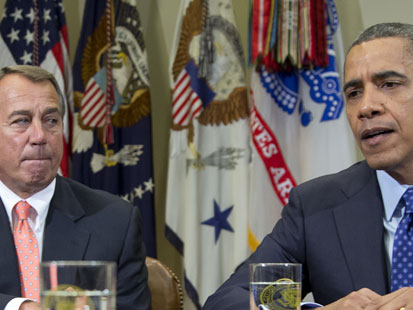DUBAI: Dubai is back in the business of unveiling mega projects, three years after a severe financial crisis crippled its booming property sector, but doubts still linger over finance and feasibility.
Just as the economy in the glitzy city-state begins to look promising, despite a large debt burden dating back to the years when growth appeared endless, Dubai has once again set its sights on building superlatives.
"We do not anticipate the future. We build it," Dubai's ruler Sheikh Mohammed bin Rashid al-Maktoum, architect of its meteoric rise into a regional tourism and services hub, boasted last week as he unveiled plans to build a "city" carrying his name.
Among the attractions of the new mega plan is a mall touted to be the largest in the world, not far from what is already the world's largest shopping and entertainment destination, the Dubai Mall.
Mohammed bin Rashid City will sprawl over a large swathe of the emirate's desert and have gardens 30 per cent larger than London's Hyde Park, in addition to 100 hotels, and a Universal Studios theme park.
No price tag was attached to the project which is to be developed by the ruler's Dubai Holding conglomerate and Emaar, which built Burj Khalifa, the world's tallest tower.
This week, Dubai also announced a 10 billion dirham (US$2.7 billion) leisure centre and theme parks.
Dubai appears keen to capitalise on its growing tourism sector which it said is expanding 13 per cent a year, with hotel occupancy rate hitting 82 per cent last year.
Sheikh Mohammed said the emirate must stay ahead of expanding demand and match its ambitions.
"The current facilities available in Dubai need to be scaled up in line with the future ambitions for the city," he said, highlighting a constant rise in tourism and the business of hosting forums and exhibitions.
"A large part of these projects are linked to expanding Dubai's capacity in core sectors with comparative advantage, such as tourism, which is positive," said Monica Malik, chief economist at EFG-Hermes investment bank in Dubai.
But the source of funding for such grandiose projects remains vague.
"We do have our own resources and way to finance... We are sure that these projects will be achieved," the Arabian Business online magazine quoted Hani al-Hamli, Dubai Economic Council secretary general, as saying.
Beyond general assurances, Dubai continues to deal with the burden of maturing debt, after it racked US$113 billion in borrowings during years of extensive investments, with US$9.8 billion reportedly coming due next year and US$3 billion in 2014.
"Banks remain wary about lending to real estate developments at a time when they still have to make major provisions against non-performing real estate loans from the last development boom," said real estate consultancy firm Jones Lang LaSalle in a statement on Thursday.
However, "the fact that these projects have long-term time lines is positive as they can be developed alongside demand, both domestically and internationally, so as not to build overcapacity," Malik told AFP.
"The funding of these plans is important and should be matched with revenue growth potential," she added.
Dubai's economy contracted 2.4 per cent in 2009 when it rattled global markets over its debt crisis before receiving a US$10-billion bailout from Abu Dhabi, its oil-rich partner in the Emirates, and reaching restructuring deals with lenders.
The economy has since made a comeback, growing 2.8 per cent in 2010, 3.4 per cent in 2011, and 4.1 per cent on an annual basis in the first half of this year, as tourism, trade and transport keep expanding.
But real estate -- a main engine of rapid growth before the crisis -- lags behind other sectors, with growth of just 1.5 per cent in the first six months of 2012.
The sector crashed in 2009 as the global crisis dried up finance and investors walked away from planned projects, many of which were eventually put on hold or cancelled.
"Encouragingly, there are indications that some of the lessons of the last real estate crisis have been learned," said Jones Lang LaSalle.
"The most important of these is the need to adopt a long-term and coordinated approach, rather than developing too much real estate too quickly."
- AFP/xq










